Statewide Strategic Framework
In October 2018, after a year-long effort in partnership with CSH and SCDD, the Statewide Strategic Framework
for Expanding Housing Opportunities for People with Intellectual and Developmental Disabilities was published. During that period, leaders in the field, including family advocates, service providers, housing developers, financial institutions, policy-makers and legislators, engaged to construct this framework for moving forward in both tested and innovative ways to address the need for affordable, supportive housing for this most vulnerable community.
The most recent version of this document published by SCDD can be downloaded here.
SSF Committee
Allie Cannington
The Kelsey
Ian Nevarez
HOPE, Inc.
Morgan Soloski
Brilliant Corners
Bill Pickel, Chair
Brilliant Corners
Jessica Gould JGould Consulting
Nancy Moody
Lifehouse, Inc.
Darin Lounds
HCEB
Josh Butler
Shreya Shah
EAH Housing
Denice Wint
EAH Housing
Kristin Martin
HOPE, Inc.
Felicia Eriksen
RCHDC
Mark Melanson
CSLN
To contact or join the LHA SSF Advocacy Committee, email info@lantermanhousingalliance.org or call (888) 542-4005.
HOUSING NEED
Three decades of research has found that people with developmental disabilities who move from institutional settings into the community are happier, healthier, have more control over their lives, and are better able to function independently. Moreover, 80% of adults with developmental disabilities in our state are currently living with aging parents who, in coming decades, will no longer be able to care for their adult children. However, market-rate housing conditions in California do not presently meet the demand of this population.
AFFORDABILITY CRISIS
Due to several market realities beyond the control of people with developmental disabilities, our state is in the midst of a severe shortage of affordable housing. This unaffordability crisis can be attributed to factors such as limited income residents through SSI, stagnant wage growth, surging market rents, land-use policies that are prohibitive of affordable housing development, accelerated conversion of market rate rental units into “short-term” rentals, the state’s elimination of redevelopment agencies, steady reduction of federal public funding, and competition from other target communities for available public support.
FRAMEWORK COLLABORATION
This effort was funded by California’s State Council on Developmental Disabilities (SCDD), an agency that ensures people with developmental disabilities and their families receive the supports they need. The framework was facilitated in partnership with LHA by the Corporation for Supportive Housing (CSH) a national nonprofit that advances housing solutions as a platform to serve vulnerable populations and create healthy communities.
LHA SSF Priorities
The Statewide Strategic Framework (SSF) includes as many as 35 distinct recommendations in the following four key areas: 1) improving system-wide data and planning, 2) enhancing statewide and local partnerships, 3) expanding funding to identify or create additional housing opportunities, 4) ensuring mainstream systems increase their focus on the housing needs of people with IDD) for expanding housing opportunities for people with IDD LHA’s SSF Committee has met several times with the goal of consolidating the many related recommendations into a manageable list of the most important areas for local and statewide advocacy. We are proposing the following four priority areas – two focused on process and data, two on expanding housing finance and programs– with the key outcome being additional housing opportunities for people with IDD.
Convene Stakeholders to Drive Systems Change and Cross-Sector Alignment for Supportive Housing Expansion
Convene and energize stakeholders across the developmental services, affordable housing and homeless sectors around an inclusive, empowering supportive housing vision for people with IDD
Advocate to align resources from California’s development services, affordable housing and homeless sectors around proven, Home and Community-Based Services (HCBS)-compliant supportive housing strategies and models
Secure resources for internal LHA capacity, professional advocacy and public relations
Identify champions in the State Assembly and Senate Budget Committees to spearhead legislation
Collect and Share Housing Data to Drive Resource Allocation for Supportive Housing Expansion
Advocate for the developmental services system to assess individual housing situations, needs and preferences, to forecast immediate and longer-term aggregate housing need, and to share aggregate housing needs data with developmental services system stakeholders and key stakeholders in the mainstream affordable housing and homeless sectors
Secure New Funding to Meet Affordable and Supportive Housing Needs of People with IDD
Advocate for increased, sustainable Community Resource Development Program funding from the Dept. of Developmental Services, to be used for: (i) for set aside of units in Low Income Housing Tax Credit developments, and (ii) for non-LIHTC supportive housing models including but not limited to preservation and/or conversion of HCBS-compliant group homes, smaller multifamily projects, ADU’s, etc.
Analyze viable options for a permanent, dedicated funding source, including but not limited to potential funding related to the developmental center closure savings or land disposition revenue, other reallocated system funds, a bond measure, etc. to fund capital and operating costs for supportive housing for people with IDD.
Promote Individual and Local Housing Outcomes through Housing Access Services to Identify Housing Opportunities for People with IDD
Sustainably fund Housing Access Services per CMS guidance, including (i) system-level work to forge cross-sector partnerships and ensure access to existing housing resources through the mainstream affordable housing and homeless sectors at the local level, and (ii) one-on-one Housing Access Services including landlord engagement, housing navigation and relocation assistance, rent administration, and ongoing tenancy support services through funding from the development service system’s regional centers.
Pilot a rent subsidy program, including both project-based operating subsidies and portable vouchers, to expand housing opportunities for people with IDD.


